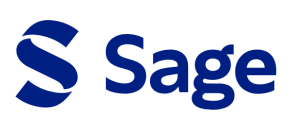Sage Publishing is retracting 37 articles from an engineering journal after finding “indicators of third party involvement” in the peer review process.
The publisher’s investigation continues, and more papers may be retracted, a spokesperson for the company told Retraction Watch.
A single retraction notice lists the links of the 37 papers to be retracted from Proceedings of the Institution of Mechanical Engineers, Part E: Journal of Process Mechanical Engineering. The notice states:
After an internal investigation Sage became aware that the peer-review process for these articles had been compromised and contains indicators of third-party involvement.
As these were accepted because of a peer-review process that did not meet Sage’s expectations of high quality and ethical peer-review, the publisher cannot uphold the integrity of the research. In line with COPE guidelines and Sage policies, these articles are retracted.
The authors have been informed of this decision using the email addresses provided at submission.
Ooi Kim Tiow, the journal’s editor in chief and an associate provost at Nanyang Technological University in Singapore, has not responded to our request for comment.
Only one of the papers has attracted notice on PubPeer. In June of last year, sleuth Alexander Magazinov commented that “Applications of fractional derivatives in MHD free-convective oscillating flow of a blood based CNTs nanofluid across a porous medium” contained “A hollow sentence with a bulk citation to the benefit of a certain YM Chu.”
Early this year, Sage became aware of concerns with the journal’s content after one article “showed indicators of third party activity and compromised peer review,” a spokesperson said. The publisher began an investigation and reviewed “all submissions that showed indicators of suspicious activity. We asked which article tipped off the investigation, but Sage was not able to share the title by our deadline.
The spokesperson said:
Sage is deeply committed to research integrity and righting the academic record. We have recently expanded our Research Integrity Group and have a full dedicated team who are actively working to guard against ethical misconduct – strengthening our use of tools and technology to undercover suspicious activity in papers, improving policies, and identifying journals where there may be similar issues. As a result, we anticipate further retractions to come as we uncover and address potential misconduct. We will continue to support our Editors and Assistant Editors in peer review best practices, and we have provided them with additional guidance on how to identify suspicious activity in journal submissions.
Sage was one of the first publishers to recognize large-scale peer review manipulation and begin retracting papers in bulk nine years ago. We wrote back in 2014 that a batch of 60 retractions involved in a peer review and citation ring “deserves a ‘wow.’” In recent years, however, publishers have been retracting even more papers at once for similar reasons.
We asked the Sage spokesperson what’s changed since 2014, and if the systems put in place to catch such problems needed updating. The response:
Since then, we’ve increased our investment in correcting the academic record and this is a sign of those efforts. We have recently put together a full team whose main purpose is to investigate these issues using new technology to help them along the way and then to improve policies and processes for the future. We have more than 1,100 journals so this can take time but we are very committed.
Other publishers have long had such teams, some for well over a decade.
Like Retraction Watch? You can make a tax-deductible contribution to support our work, follow us on Twitter, like us on Facebook, add us to your RSS reader, or subscribe to our daily digest. If you find a retraction that’s not in our database, you can let us know here. For comments or feedback, email us at [email protected].

A name to take note of: Ioan Pop.
https://journals.sagepub.com/doi/full/10.1177/09544089211046434
Why do you think Ioan Pop is an interesting case?
The Romanian press reported on some kind of unethical publishing practices and I wonder if the two are related.
Thank you!
https://pressone.ro/afacerea-premii-pentru-cercetare-1-studii-stiintifice-la-kilogram-recompensate-din-bani-publici/?fbclid=IwAR3HUcNhQHHjhwdQiGjGUPhTaTWKYeUZXs2SioLxIr4brW-wSUmC_OtnAOw
wonder if he has ever met the other 3 co-authors from Iran, performed experiments in a lab together, discussed results in meetings, etc.??
Or cartel only formed through online contacts and negotiation, never left their home country?
Dear Authors,
Before submitting your article to Sage Open, you all are invited to read our critical analysis titled “SAGE Open Publishes False Hypotheses Testing Results: An Easy to Publish Outlet”. We have identified that the journal publishes false and erroneous research that is not credible and should not be followed. Please be cautious! It’s a clear predatory journal. Read here: https://scholarlycritic.com/sage-open-publishes-false-hypotheses-testing-results-an-easy-to-publish-outlet.html